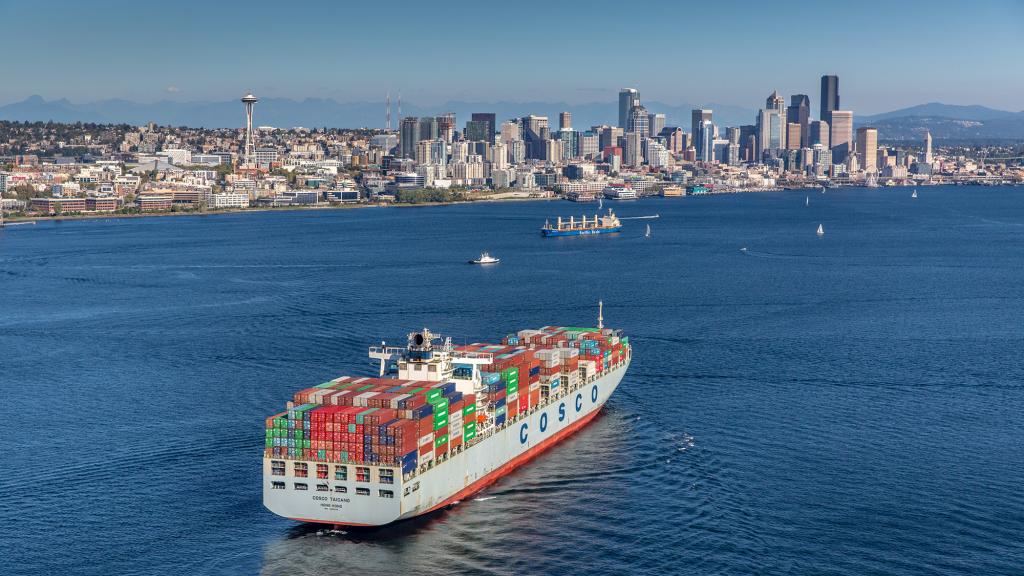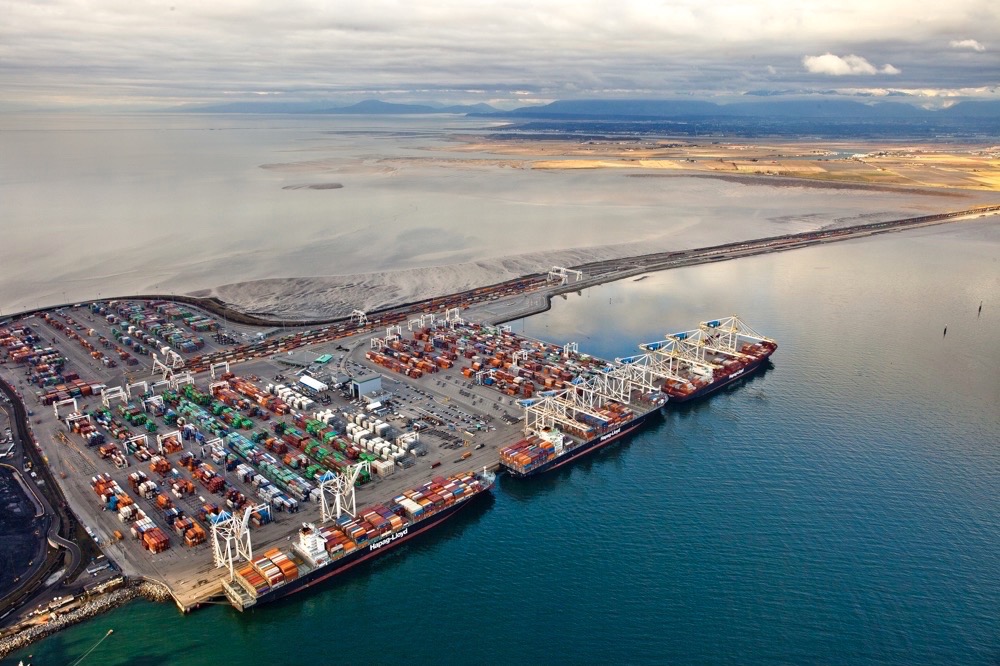The Northwest Ports of Vancouver, BC, Seattle, Tacoma, and the combined container operations of The Northwest Seaport Alliance, are jointly committing to a new vision to phase out emissions from seaport-related activities by 2050, the Northwest Seaport Alliance announced.
In collaboration among the four ports, the Northwest Ports Clean Air Strategy seeks to meet this target through changes in equipment, fuels, and infrastructure, supporting cleaner air for local communities, and fulfilling the ports’ shared responsibility to help limit global temperature rise to 1.5°C.
“In order for us to meet these ambitious long-term targets that benefit the climate and surrounding communities, it’s essential that the state and federal government partner with the Ports to provide progressive policies and financial assistance that create incentives for their adoption prior to regulatory obligations,” said Fred Felleman, Port of Seattle Commission President and Co-Chair of The Northwest Seaport Alliance. “Given the looming climate crisis, it’s also critical to recognize that we are committed to making near term progress in collaboration with our business and community partners.”
“As Canada’s largest port, we are committed to supporting the Government of Canada’s goal of achieving net zero emissions by 2050,” said Robin Silvester, president and chief executive officer of the Vancouver Fraser Port Authority. “The Northwest Ports Clean Air Strategy is a key part of our efforts to advance the clean energy transition while protecting the competitiveness of the port and the economic prosperity it delivers to our communities.”
“Even though maritime transport is an efficient means to move goods and people, the industry still relies on fossil fuels, and global growth in activity means that emissions overall are still on the rise,” said Dick Marzano, Port of Tacoma Commission President and Co-Chair of The Northwest Seaport Alliance.
Building upon the partnerships and successes of the last decade, the ports’ commitment recognizes the urgency of the climate crisis and the need to reduce diesel emissions, especially in areas where air quality is poor, while ensuring the continuity and competitiveness of the ports. Engagement across the ports, industry, government, and communities shaped the Strategy vision and objectives. The Strategy covers six sectors of port activity: oceangoing vessels, cargo-handling equipment, trucks, harbor vessels, rail, and port administration and tenant facilities. (Photos Port of Vancouver and bellow, Seattle)






